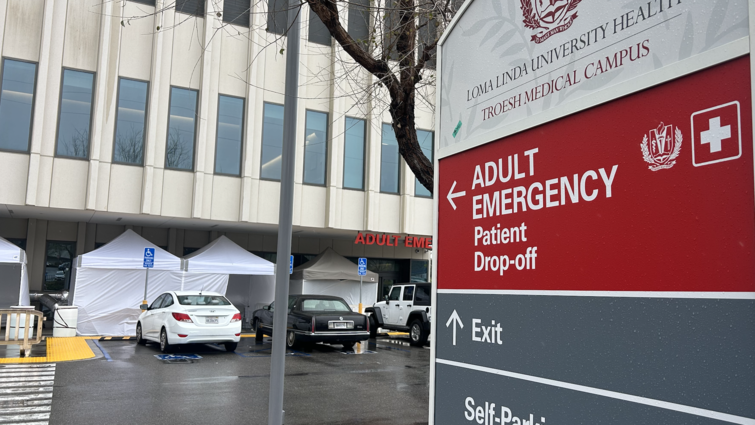
A $1.2-million state grant is enabling Loma Linda University Health to help specific populations reduce avoidable emergency department utilizations.
Loma Linda University Health is using the California Enhanced Care Management Medi-Cal benefit to support social workers, community health workers, and other Emergency Department staff as they partner with certain patients who may be experiencing homelessness or suffering from serious mental illness or substance use disorder needs.
“This grant allows us to go beyond the walls of our hospital by supplementing the type of services we can provide to particular patients who need additional assistance,” said Pamela Glaspell, assistant vice president for care coordination of social work and case management at LLUH.
Glaspell said LLUH applied for the grant with a proposal for a multi-departmental approach. The project’s team included a full-time licensed clinical social worker, a full-time nurse care manager, three community health workers, a part-time social work manager, and managers to oversee the process.
Emergency department referrals are often handled by community health workers partnering with the patient to ensure they attend follow-up appointments and take prescribed medication regularly.
The grant provides funding for 18 months.
Glaspell said she’s excited to see this project flourish because of the team coordination. The multi-disciplinary team meets monthly with Emergency Department physicians, social workers, case managers, security leadership, patient experience leadership, chaplaincy leadership, and the community health worker team, who review cases and receive feedback from the team.
“It’s rewarding to see the difference we can make and how we’re positively impacting patients and families,” Glaspell said.
Community Health Worker Selina Pena says a key part of her job is building trust with patients. She often receives referrals from emergency physicians about patients who come frequently. She also walks around nearby bus stops to see if any of her patients are there and may need some help.
“My work is fulfilling, to say the least,” Pena says. “My patients ask me why I do what I do, and I tell them that I’ve been there. I was once homeless, too. And I want to be able to share the hope that I was given and pay it forward.”
